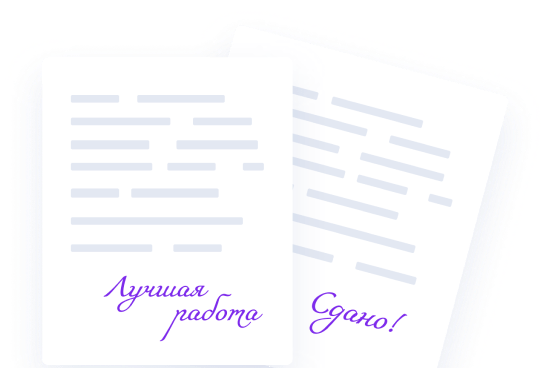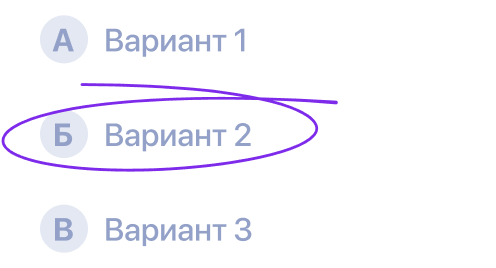Self Reflection
Выбери формат для чтения
Загружаем конспект в формате pdf
Это займет всего пару минут! А пока ты можешь прочитать работу в формате Word 👇
Coursework 1 – Self Reflection
William Parkinson – 3609758
Contents
Impact of Technology ............................................................................................................................. 2
Skills Developed ..................................................................................................................................... 4
Career Aspirations .................................................................................................................................. 6
My Personal Development Plan.............................................................................................................. 7
References ............................................................................................................................................... 8
1|Page
Impact of Technology
Technology has been influencing every industry for thousands of years, whether it be through new
tools, machines, computers, or most recently, through the use of vast amounts of information.
One industry which has recently benefitted from increasing their use of technology is the Finance
sector. This was partly due to a growing distrust in banks, resulting from the 2008 global financial
crisis, creating a demand for more transparency and regulations. However, the biggest catalyst was the
realisation that traditionally non-technical industries, such as banking, could benefit from collecting
and analysing large quantities of data, leading the way for the explosion of FinTech solutions that we
see today. A few examples of financial technologies include online banking, cryptocurrency, digital
wallets such as Apple Pay and neobanks such as Monzo.
Online banking is possibly the most obvious impact that technology has had on the finance industry as
it something that most of us use almost every day. It allows customers to complete the vast majority
of their banking remotely, whilst ensuring that they have more control over their money. Allowing
customers to have visibility and instant access to their money solves the problem of transparency,
reduces costs and improves customer service.
Cryptocurrency is a decentralised, digital currency that uses blockchain to allow for anonymous,
secure transactions. The security, low fees and instant payments attracted companies such as
Microsoft to adopt Bitcoin (the most popular cryptocurrency) as a method of payment in 2014
(Warren, 2014). However, the price of cryptocurrencies is incredibly volatile, dissuading many
businesses from accepting it as tender. On top of this, its anonymous and broadly unregulated nature
means that it is often associated with online criminal activity. Cryptocurrency has threatened
mainstream banks since its conception as it risks making them redundant if it were to become the
norm. However, the CEO of Goldman Sachs points out that there was the same level of fear and
scepticism when paper money replaced gold (Stafford-Langan, 2018). In the last 12 months the hype
and volatility of cryptocurrencies has lessened, however I believe that this is a sign that it is becoming
more widely accepted and will continue to impact that finance industry.
2|Page
Digital wallets (e-wallets), such as Apple Pay, are often used to make mobile payments online as well
as utilising the advancements of financial hardware in contactless payment systems. Using digital
wallets makes transactions easier because customers have unlimited access to all of their cards in one
place. This is also a huge advancement in security as you are the only person who can use your digital
wallet which massively reduces the risk of your cards being stolen.
The term neobank was popularised in 2017 and describes a bank which operates exclusively online
and does not have any affiliation with any physical branch network (CrowdfundUP Team, 2018). As
we have seen with other Fintech, neobanks are able to give customers even more control over their
money and allow them to better manage their spending. For example, Monzo allows customers to
block certain types of spending on their account, such as gambling. In the UK, 23% of people now
have a digital only bank account, however due to the often limited nature of neobanks, many people
see them as a secondary account and maintain a bank account with a traditional high street bank
(Barton, 2020). Regardless of whether neobanks become mainstream or not, the large numbers of
digital bank start-ups create a healthy competition with incumbent banks as well as causing rapid
change in a traditionally slow to react industry (Bambourgh, 2018).
Technology is drastically changing the banking industry at a very fast pace, providing customers with
an alternative to traditional banking and allowing them more control of their finances. Changes made
as a result of the impact of technology in this industry are creating new opportunities and challenges
across different industries, such as in gambling, resulting in yet more positive innovation.
3|Page
Skills Developed
This module has given me the opportunity to learn new skills and enhance those that I already
possessed in an environment that effectively mimics that of a real-life workplace. On top of this,
COVID-19 has brought about its own challenges and opportunities: being forced to work remotely
was difficult at first and this was partly exacerbated by a team member’s physical disability. However,
I adapted to and overcame this challenge by emailing my team member summaries of the meetings
and ensured that I was regularly available on email for his assistance. Aside from that, this module has
allowed me to refine four vital skills: collaboration, project management, requirement elicitation and
product design.
From the beginning of this module, teamwork and collaboration have been strongly encouraged and
are paramount to achieving a good grade, due to the group coursework being worth 70% of the overall
mark. Before establishing our group for the coursework, we completed a test which allocates us
Belbin roles. Doing this not only gave me a better understanding of my strengths and weaknesses, but
it showed me with whom I work best. My team and I have worked incredibly well together, holding
regular meetings, using google drive for collaborative work and communicating efficiently using a
mixture of WhatsApp and MS Teams.
During the initial stages of the group work, the team and I assessed each other’s Belbin roles and used
these as a basis for our role allocation. I put myself forward as Scrum Master; a role which requires a
high level of project and team management. In fulfilling this position, I have co-operated well with
the team to organise and manage group meetings (both with and without our client) and have ensured
that we are all working towards the goals set out in the product and sprint backlogs. One member of
the team suffers from a vision impairment and relies on specialist software to complete even basic
tasks on a computer. This has led to a few problems which, as scrum master, I have had to overcome
on behalf of the group. For example, he is not able to use a mobile phone to send texts, which means
that he cannot use the WhatsApp group chat. To counteract this, I have been in regular
communication with him over email, updating him on everything that we have spoken about.
Unfortunately, co-operating with this team member is made more difficult by his unreliability and
4|Page
reluctance to accept help, leading to regular misunderstandings. For example, despite being locked
inside due to COVID-19, he is often too busy to attend the meetings with the client. This, coupled
with ignoring many of my emails and misunderstanding tasks, means that much of his work has to be
re-done by myself and the other team members. As a result, it will be difficult to fill in the peer
evaluation form because he is completing the work assigned to him, just incorrectly.
Another key skill that I have been able to develop during this module is my ability to elicit
requirements from stakeholders. We have had weekly meetings with our client, either face to face or
using Microsoft Teams. During the first meetings with him, we spent over 30 minutes ensuring that
we completely understood the project and its objectives. In every meeting since, we have started the
meeting by showing him our progress and giving him a chance to suggest changes or change the
requirements. As Scrum Master, I have been recording each meeting so that I can watch it back, take
minutes and update the product and sprint backlogs as well as the Gantt chart. Doing this once the
meeting has finished has meant that I am able to be an active member of the team during the
discussion.
5|Page
Career Aspirations
It is my current aspiration to return the West Country and become a data analyst once I have
graduated from university. After working several days with a data management consultancy firm,
based in Chelsea, I saw how rewarding it could be to turn data into information and subsequently,
information into insight. I enjoy visualising data and using it to tell a story by transforming into
dashboards using software such as PowerBI or Tableau. However, during my final year at university,
I have become more confident using programming languages such as Python as well as data mining
software such as SAS or SPSS. This development has led me to apply for many data scientist
positions as well.
During this module, I have adopted the role of Project Manager (Scrum Master), this has meant that I
have been responsible for the requirement elicitation as well as UML diagrams, Gantt charts and
sprint backlogs. These sorts of tasks are typical responsibilities of business analysts and, although I
believe that I would make a great BA, I am considering this career path as secondary to data analysis.
In the current climate of mass unemployment, however, it is more likely that I take on a business
analyst role since, after looking on various job websites, it appears as though there are considerably
more vacancies.
I have currently applied to dozens of jobs and graduate schemes and am successfully moving through
the application process for six of them. However, since the escalation of COVID-19, I have seen a
significant drop in vacancies as many companies are being forced to reduce their number of staff, let
alone take on new members. This recent recruitment freeze means that I am having to apply to many
jobs that I had not previously considered, but I welcome the chance to gain interview experience. The
interviews themselves have also changed in that they are now being conducted solely online.
Personally, I think this makes the application more difficult because I believe I would be more
successful in face-to-face interviews.
6|Page
My Personal Development Plan
Once I have completed my final exam on 3rd June, I intend to continue to develop the skills that I have
gained during my time at university and, specifically, during this module. I will also continue to
advance my own independent research projects; something which I have completed throughout
university and look forward to having more time to complete in the future. These projects are often IT
related, however I focus on whatever is interesting me at the time. For example, using World Health
Organisation data, I have created a highly informative, interactive dashboard – along with multiple
predictive and descriptive models – and I will continue to work on this project until the end of the
pandemic. I am also working towards my Tableau Specialist certificate and aim to have achieved the
certification by the end of August. Once I have completed and passed this examination, I intend to
focus on the Tableau Associate and later Tableau Professional certification.
During my final year project, I have successfully created software that is able to detect and flag hate
speech on Twitter. During the evaluation of my project, I listed a few improvements that could be
made to increase the accuracy and the scope of the system. I have really enjoyed creating this system
and believe that it is close to being a professional piece of software. I will continue to work on the
program, aiming to increase the accuracy from 94.6% to 97% in the next few months.
7|Page
References
Bambrough, B. (2018) Global Fintech Warning To Traditional Banks – The Threat is ‘Real And
Growing’. Available from: https://www.forbes.com/sites/billybambrough/2018/10/17/global-fintechwarning-to-tradional-banks-the-threat-is-real-and-growing/#5468826e2c71 [Accessed 24th April
2020].
Barton, C. (2020) Digital Banking Adoption. Available from: https://www.finder.com/uk/digitalbanking-adoption [Accessed 13th April 2020]
CrowdfundUP Team (2018) What is a Neo Bank and how are they disrupting traditional banking
models. Available from: https://medium.com/crowdfundup/what-is-a-neo-bank-and-how-are-theydisrupting-traditional-banking-models-3c1b2fa5b8e1 [Accessed 13th April]
Stafford-Langan, R. (2018) Cyrpto goes mainstream: what big finance is doing. Available from:
https://www.fnlondon.com/articles/what-the-biggest-financial-institutions-are-doing-aboutcryptocurrencies-20180807 [Accessed 13th April 2020].
Warren, T. (2014) Microsoft now accepts Bitcoin to buy Xbox games and Windows apps. Available
from: https://www.theverge.com/2014/12/11/7375771/microsoft-supports-bitcoin-payments
[Accessed 13th April 2020].
8|Page





